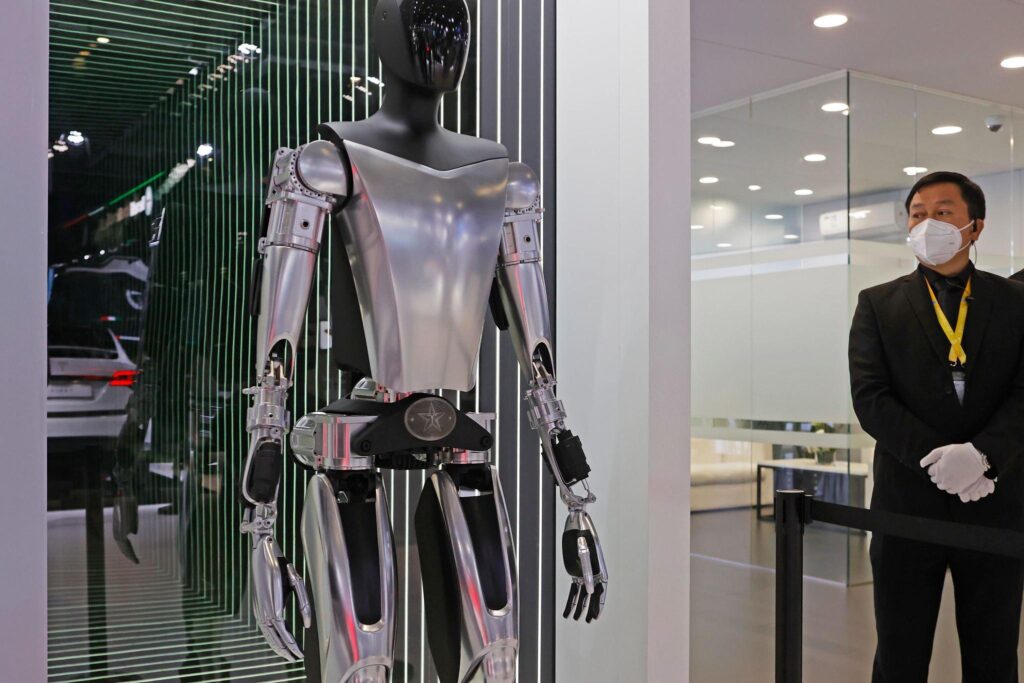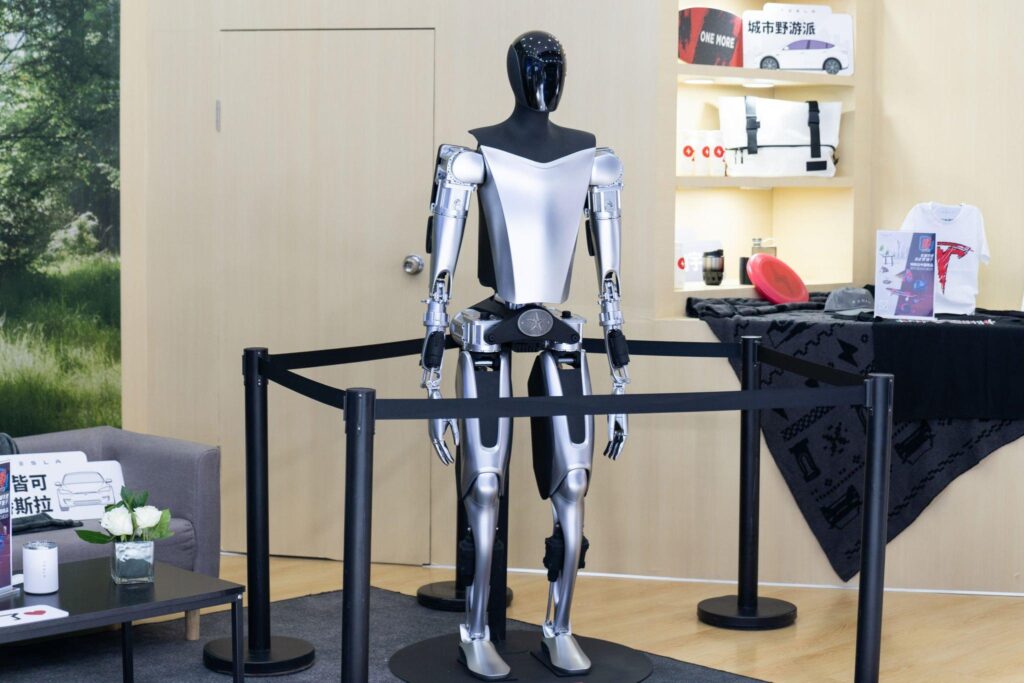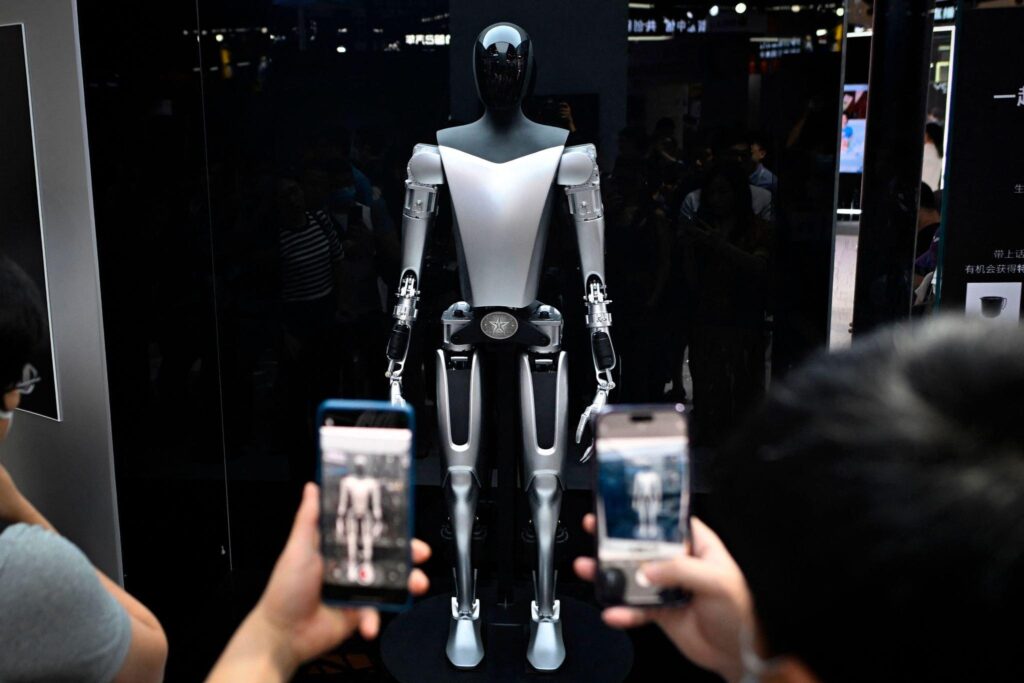Tesla Robot A Best Glimpse into the Future of Robotics
Table of Contents
Introduction
In an era characterized by groundbreaking technological advancements, Tesla has once again taken a giant leap forward. This time, it’s not just about electric cars and sustainable energy solutions. Tesla is venturing into the world of robotics, and it’s creating quite a buzz. In this article, we’ll delve into the intriguing concept of the Tesla Robot, exploring its potential impact on the world of robotics and artificial intelligence (AI).
The Birth of Tesla Robot
Elon Musk, the visionary founder of Tesla, unveiled the concept of the Tesla Bot in a highly anticipated event. This humanoid robot is designed to perform tasks that are dangerous, repetitive, or mundane, freeing up humans for more creative and complex endeavors.
The Features of Tesla Robot

1. Humanoid Design
The Tesla Bot is designed to resemble a human, with a bipedal structure that enables it to navigate and interact in a human-centric environment.
2. AI-Powered Intelligence
Powered by advanced artificial intelligence, the Tesla Robot is capable of learning and adapting to new tasks and environments.
3. Autopilot Hardware
Leveraging the technology developed for Tesla’s self-driving cars, the robot is equipped with state-of-the-art hardware for autonomous navigation.
4. Enhanced Sensors
Multiple sensors, including cameras and LiDAR, provide the robot with a comprehensive view of its surroundings, ensuring safety and precision in its actions.
5. Human Interaction
Tesla has focused on making the robot user-friendly, allowing for natural human interactions and communication.
Applications of Tesla Robot

1. Household Chores
Imagine a robot that can do your laundry, clean your house, and even prepare meals. The Tesla Bot aims to make these everyday tasks a breeze.
2. Healthcare Assistance
In healthcare settings, the robot can assist medical professionals by transporting supplies, reducing physical strain, and even providing companionship to patients.
3. Manufacturing and Industry
Tesla Robot’s precision and reliability make it an ideal candidate for tasks in manufacturing, assembly lines, and quality control.
4. Dangerous Environments
One of the most significant advantages of the Tesla Bot is its ability to handle dangerous tasks, such as defusing bombs or exploring hazardous areas.
Challenges and Concerns

While the Tesla Bot promises a future filled with automation and convenience, it also raises important questions and concerns.
1. Job Displacement
The widespread adoption of robots like the Tesla Bot could lead to job displacement in various industries, requiring a careful transition plan.
2. Security and Ethics
Ensuring the security of AI-powered robots and addressing ethical concerns regarding their use is paramount.
3. Dependence on Technology
As we rely more on technology for everyday tasks, there’s a risk of losing essential skills and becoming overly dependent on robots.
Conclusion
The Tesla Robot represents a significant step toward a future where robots and AI seamlessly integrate into our daily lives. While it opens up exciting possibilities, it also challenges us to consider the implications of widespread automation. As with any technological advancement, striking a balance between innovation and responsibility will be crucial in shaping the world of robotics and AI.
FAQs
When will the Tesla Robot be available to the public?
The exact timeline for the Tesla Bot’s release to the public has not been disclosed, but it’s expected to be a few years away.
How much will the Tesla Bot cost?
Pricing details have not been confirmed, but it’s likely to be a substantial investment given its advanced technology.
Can the Tesla Bot perform complex tasks?
Yes, the Tesla Bot is designed to handle a wide range of tasks, including complex and repetitive ones.
What safety measures are in place to prevent accidents with the Tesla Bot?
Tesla has incorporated advanced sensors and AI algorithms to ensure the safety of both the robot and humans around it.
Will the Tesla Bot replace human jobs?
While it may automate certain tasks, it’s unlikely to replace humans entirely, as there will always be a need for human oversight and decision-making.
Access Now : Robots The Future Best of Automation

